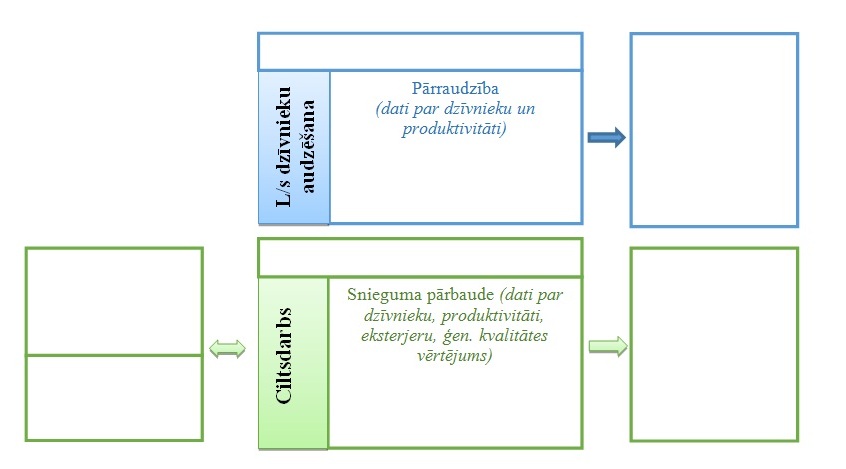Changes expected in animal breeding and breeding regulations
From 1 November 2018, EU Member States, including Latvia, must apply the Animal Breeding Regulation1, which aims to improve purebred animal breeding systems and to apply uniform conditions in all EU Member States.
The Animal Breeding Regulation will replace the current EU animal breeding directives and decisions and is directly applicable. The Regulation applies to the breeding of purebred cattle, pigs, sheep, goats and horses, as well as to the breeding of crossbred pigs.
The Animal Breeding Regulation includes requirements for breeders' associations of purebred cattle, pigs, sheep, goats and horses and crossbred pig breeders' organisations, breeders of the above species and other persons engaged in breeding purebred animals or crossbred pigs of the above species. The Animal Breeding Regulation also includes requirements for official controls, as well as specific actions to be taken if controls reveal that the conditions of the Regulation are not met. It should be noted that the Regulation also specifies controls by the European Commission in any EU Member State.
The Animal Breeding Regulation provides for relaxed requirements for endangered breeds (i.e. local breeds with very small numbers of animals) so that they can be successfully preserved.
In order not to duplicate the provisions of the Animal Breeding Regulation, as well as to determine other necessary requirements (not regulated at EU level) for the improvement of the animal breeding and breeding system in the country, Latvia needs to clarify its national legal provisions. To ensure the above, the Ministry of Agriculture has prepared a draft law “Animal Breeding and Breeding Law”, which will replace the currently valid Breeding and Animal Breeding Law. The draft law is planned to enter into force by 1 November 2018.
Since the farmer himself chooses the direction of his farming, the draft law specifies and also separates the areas of animal breeding and breeding:
1) farm animals breeding for the purpose of producing animal products, such as milk, meat, eggs, wool, etc., production, including the production of animals (except the production of purebred farm animals). The process of breeding farm animals also includes monitoring, therefore, the breeders of these animals, as before, voluntarily will be able to carry out monitoring that will only include recording animal productivity data,
2) breeding work, which is various a set of measures for the implementation of the breeding program, and its purpose is to obtain purebred farm animals or crossbred pigs. If the farm is involved in breeding, it must cooperate with the relevant breeders' association or crossbred pig breeders' organization and carry out all breeding activities, including performance testDuring performance testing, data is obtained about the farm animal, its productivity, exterior, as well as other data that can be used to determine the genetic quality of the farm animal.
A scheme for the breeding and breeding of farm animals has been added to illustrate the division of areas envisaged in the new draft law "Animal Breeding and Breeding Law".
Source: Ministry of Agriculture


